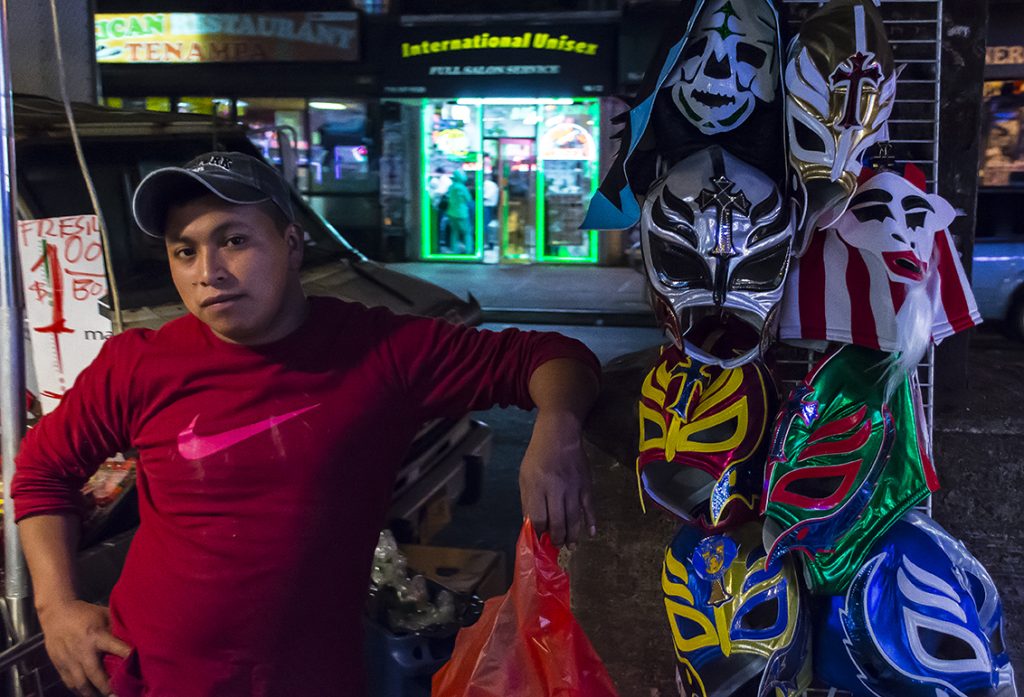I grew up in a community where your barber was Dominican, your neighbor was from some oddly-named town in Venezuela and your closest friends ended up being the people who rooted for the same South American soccer team as you during the FIFA World Cup. Not everyone was Hispanic, but there were enough of us around that whenever I blasted Daddy Yankee’s latest hit from of my uncle’s 2005 Ford van I could be sure someone else was enjoying that music too.
Two years ago the U.S. Census Bureau estimated that roughly 54 million Hispanics were living in the United States, but counting the Hispanic populace remains problematic because the term “Hispanic” represents a vague characterization of Spanish-speaking people.
By U.S. legislative definition, anyone with a Spanish-speaking background can identify themselves as Hispanic.
The word “Hispanic” was adapted into the U.S political vocabulary in the early 1970’s, and ever since then a 13-year-old Filipino boy with grandparents from Spain could fall under the same category as a grandmother from the Dominican Republic.
Originally this overlapping of Hispanic people benefited the Hispanic community because anyone outside the Chicano, Mexican-American, Cuban and Borinquen/Puerto Rican category no longer failed to be recognized as a Spanish-speaking minority. Hispanics felt that being recognized as a more inclusive group of people would help their causes for equality and gain media attention and financial support at a time when African-Americans were also rallying for publicity and resources.
But as Hispanic culture, no not Chipotle, began making its way into American lives, the term diverged from one that presumably helped the people it labeled into one that carried stereotypes.
A team of psychologists at the University of Aberdeen recently published an article in the journal Psychological Sciences that explains “the process of repeatedly passing social information from person to person can result in the unintentional and spontaneous formation of cultural stereotypes.”
The study notes that when humans talk to each other they generally try remember information through association. Unfortunately, in doing so, humans can also disregard key details that may be necessary for a complete understanding of a topic.
Dr. Douglas Martin, lead researcher in the Aberdeen study, said the word “Hispanic” may facilitate stereotype formation since it is already a large association of distinct Spanish-speaking nationalities.
“Social categories, such as ‘Hispanic’, are a useful way of simplifying our complex social environment,” said Martin. “Our brains seem hard-wired for such simplification, such that even though we rationally know that people are unique individuals, we still tend to group them together based on some existing or perceived similarity because it is more cognitively efficient.”
So what kind of information associated with the word “Hispanic” is being consumed and shared by the public?
A 2007 analysis by the Pew Research Center shows that 22,823 immigration stories were filed that year, making up 4.8 percent of what was on the news, reflecting the media’s growing awareness that the 2008 election would be influenced by Hispanic voters. Based on the Pew research and the Aberdeen study, the U.S. population began talking about immigration policy, a key issue in the 2008 presidential race, and associating it with the people most affected by it: Hispanics.“There’s a lot of assumptions that can be made against that population, whether it be low-income, undocumented or Spanish speaking only,” said Frank D. Sanchez, the Vice Chancellor for Student Affairs at the City University of New York, talking about how students tend to face these stereotypes the hardest. “And there will always be these inferences unless you can have a deeper understanding of who Hispanics make up,” Sanchez said.
The problem with the word Hispanic goes beyond stereotypes and could also cause discrepancies in the accuracy of multitudes of sociological researchers’ data.
Warren Sanderson, a professor at the Department of Economics at Stony Brook University who understands how micro and macro research is executed, explained how the word “Hispanic” is obstructing when studying complex topics, and is really only useful when researchers are tight on time or resources.
Sanderson said the term Hispanic is useful when gathering data on broad subjects, like population, because it is “less expensive”. This means that it costs the researchers less time and effort to complete a study because it links outcomes to a single term. Unfortunately, the economic use of the term leads to skews in research that relies on more specific categorization.
For example, studying diabetes rates in a Hispanic population would suffer from using the word “Hispanic” because a Cuban family of four may incorporate more sugar into their diet than a Bolivian widow. This could be due to income differences, culture, etc. In this case the word Hispanic groups two drastically different people under the same umbrella. This could lead to inaccurate data that brings unnecessary or negative changes if taken seriously by policy makers or other officials.
But the word “Hispanic” should bring the community together, right ? Doesn’t it unite all Spanish-speaking people into one large family besides when the FIFA World Cup is on?
“I don’t think that it unites people”, said Lynda Perdomo-Ayala, department administrator in the Department of Pharmacological Sciences in Stony Brook University’s School of Medicine, who serves as the Hispanic Heritage Month Lead Chair at Stony Brook University.
Perdomo-Ayala grew up in a time when being Hispanic meant being a family that pushed for equality and justice, but now lives in a time when it means little to nothing.
“If it united people, we would have a stronger presence,” said Perdomo-Ayala. “We certainly have the numbers, but we never see any action because your generation has been ingrained with biases against other Hispanics already, so there is no cooperation.”
I thought hard about what Lynda told me after I left her office. Hispanics seemed to get along well when given a bird’s-eye-view, but then I remembered another side to growing up in Corona, Queens. I remembered the fights that broke out when someone called a Dominican a Puerto Rican, or when a Bolivian made fun of a Mexican who had trouble reading the definition of photosynthesis out loud in class. It started to make sense.




Comments are closed.